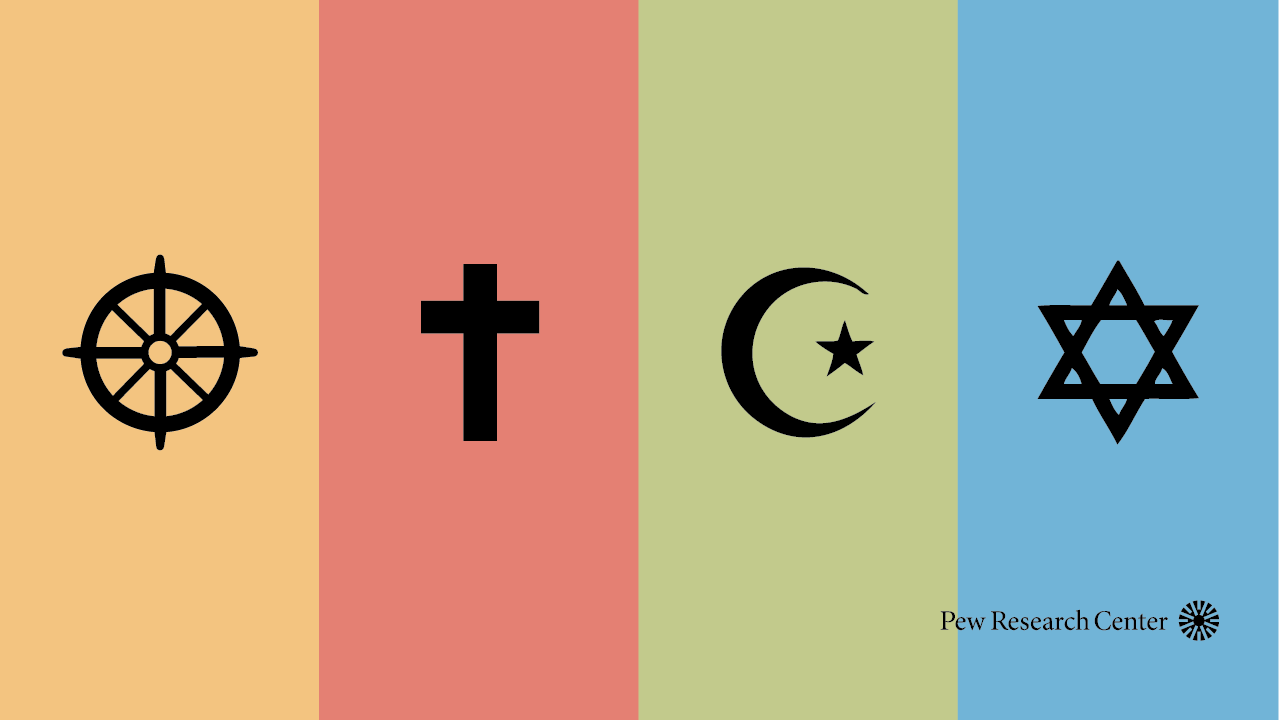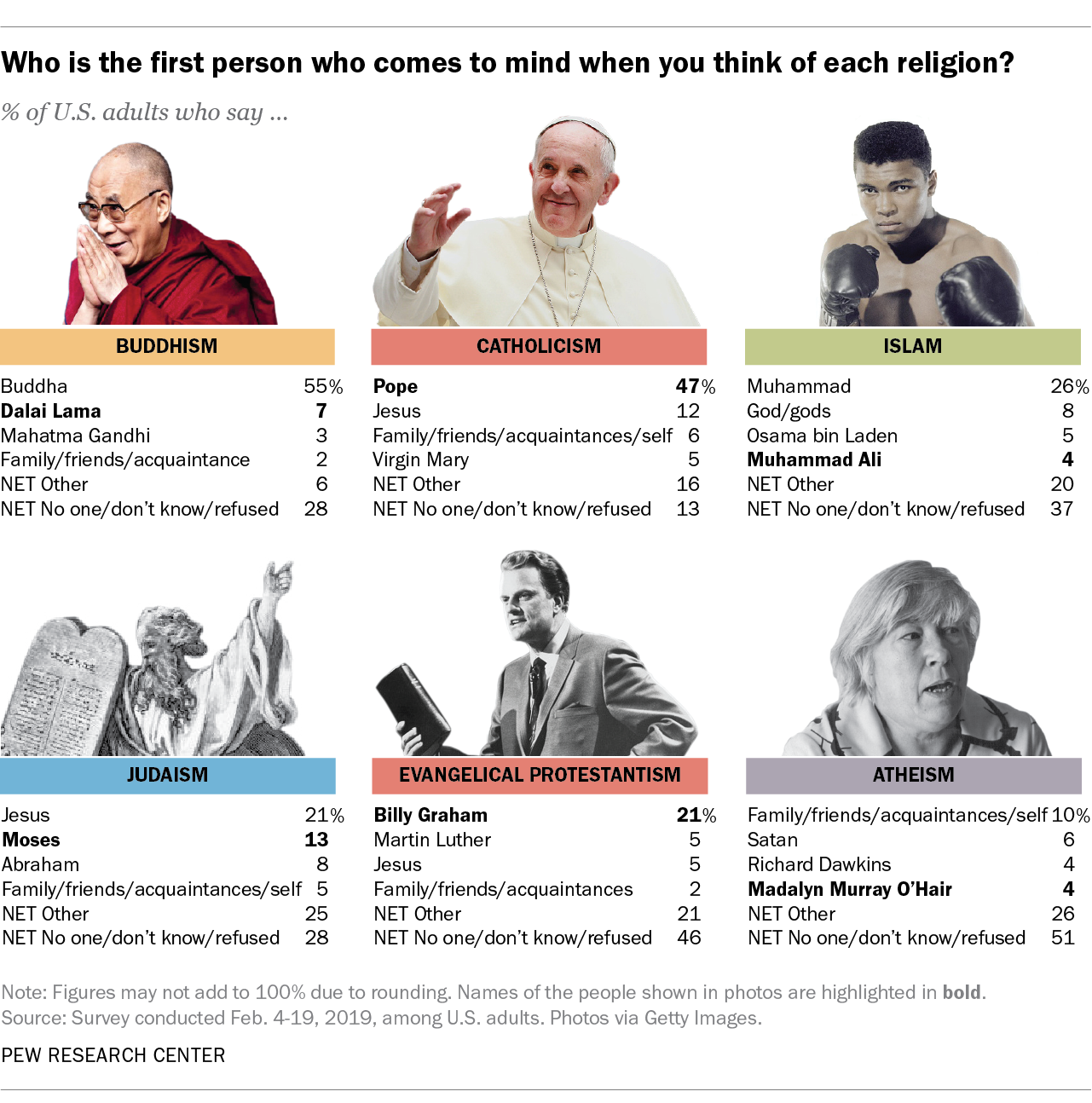
Who is the first person who comes to mind when you think of Catholicism?
If your answer contains the word “pope,” you’re in good company. More than half of U.S. adults name the pope (47%) or a specific pope (7%) when asked that question, according to a new analysis of a Pew Research Center survey.
The survey, conducted Feb. 4 to 19, 2019, asked respondents to name the first person who comes to mind when they think about Catholicism, Buddhism, evangelical Protestantism, Islam, Judaism and atheism.
How we did this
The data for this post was drawn from a survey of 10,971 U.S. adults conducted in February 2019 that also included 32 fact-based questions related to religion. The six questions analyzed in this post were asked in a split form design. Each of the respondents received two of the questions: 3,645 respondents were asked about the first person who comes to mind when they think of Catholicism and Buddhism, 3,698 other respondents were asked about the first person who comes to mind when they think of evangelical Protestantism and Islam, and 3,628 other respondents were asked about who first comes to mind when they think of Judaism and atheism.
Of the total surveyed, most (10,429) were members of Pew Research Center’s American Trends Panel (ATP), an online survey panel. An additional 542 respondents were sampled from the Ipsos KnowledgePanel – all of them Jewish, Mormon or Hispanic Protestant, to bolster the samples for these subgroups. Both of these online survey panels recruited panelists by phone or mail via random sampling to ensure that nearly all U.S. adults have a chance of selection. Recruiting panelists this way gives us confidence that any sample can represent the whole population (watch our Methods 101 explainer on random sampling).
To further ensure that each survey reflects a balanced cross-section of the nation, the data is weighted to match the U.S. adult population by gender, race, ethnicity, partisan affiliation, education and other categories.
Here are the questions used in this analysis, along with responses, and the survey’s methodology.

For three of the religions, Americans are most likely to name a figure from long ago: for Buddhism, Buddha; for Islam, the Prophet Muhammad; and for Judaism, Jesus. For the two Christian groups asked about, people are most likely to name a modern religious leader – for evangelical Protestantism, Billy Graham; and for Catholicism, the pope.
When asked who comes to mind when they think about atheism, though, Americans are much less likely to name a well-known figure. While 6% say Satan, 4% say Richard Dawkins and 4% say Madalyn Murray O’Hair, one-in-ten respondents just name themselves or another personal acquaintance such as a relative, friend or roommate. And roughly half (51%) say “no one” or “don’t know” or do not answer the question.
Asked about evangelical Protestantism, nearly half of Americans (46%) say “no one” or “don’t know” or do not answer the question. An additional 21% name Billy Graham, 5% each name Jesus and Martin Luther, and 9% name other religious leaders.
For two of the non-Christian religions asked about in the survey, respondents are most likely to name someone central to that religion. For Buddhism, 55% of respondents name Buddha. The next most popular response is the Dalai Lama (7%). As for the first person to come to mind when thinking of Islam, a quarter of respondents name Muhammad (26%), while an additional 8% say God.
About half of respondents asked about Judaism name a person who appears in religious scripture, including Jesus (21%), Moses (13%) and Abraham (8%). And 7% name either a well-known historical figure, such as Anne Frank or Albert Einstein, or a celebrity such as Jerry Seinfeld. An additional 5% name someone they are personally acquainted with, and 4% say God.
Note: Here are the full responses and the survey’s methodology.

